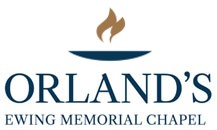Cremation is the process of reducing the human body to bone fragments using high heat and flame. Cremation is not the final disposition of the remains, nor is it a type of funeral service.
Some religions welcome cremation while others forbid it. Orthodox Judaism forbids cremation while other sects of Judaism allow cremation, although burial remains the preferred option. Various Christian denominations discouraged cremation historically, but now it is more widely accepted. In eastern religions such as Hinduism, Sikhism and Buddhism cremation is mandated, while in Islam it is strictly forbidden.
Cremation is an option – an alternative to burial – that some consider for its simplicity, lower cost, or environmental factors. Below are just a few of the common questions we are asked. If there are any unanswered questions, our directors are available by phone or in person to walk you through the options.
Can a Funeral Service be Held Prior to a Cremation?
Yes, honoring the deceased with a funeral service is often done prior to a cremation. In many cases, this allows for the cultural or religious rituals to be performed. Instead of the deceased being buried after the service, the body would be cremated. The cremated remains may then be buried, kept, or scattered, depending on customs and tradition.
What is a Memorial Service – can the ashes be present?
A memorial service is simply a service that does not involve the physical presence of the deceased. The service can take place anywhere because there is no need to accommodate a casket. Our funeral chapel always remains an option for the gathering. The ashes can be present at the service along with photographs, but some families choose not to have them on display.
Is Cremation less expensive than Burial?
In most cases yes, but not always. The simplest form of cremation – direct cremation – removes the need to purchase a casket, grave liner, cemetery plot, cemetery opening fees, and physical preparations. In cases where a funeral service is chosen that ends with cremation instead of burial, the savings may be minimal if the ashes are to be buried in a cemetery because many cemeteries require an urn vault and have grave opening fees very similar to those of traditional burial.
Does the cremation take place at the funeral home?
In New Jersey, a funeral home cannot operate a crematory. We use a local crematory, chosen for its high standard of care. By law, the charge for the funeral home and the crematory must be itemized separately.
Is a casket needed for Cremation?
No, a casket is not required for a direct cremation. There is a requirement for an alternative container, a simple minimal casket which is included in the cost of the cremation.
Is embalming required prior to cremation?
No.
Can the body be viewed without embalming?
Yes. If requested, a brief private viewing can be arranged for identification purposes.
Can the family witness the cremation?
Yes. The crematory limits the number of family members who can be present to three.
Can an urn be brought into a synagogue or church?
Some synagogues will not allow an urn to be present during the memorial service, but this is changing year by year. Most Protestant Churches allow for the urn to be present during the memorial service. Most Catholic Churches will allow the remains to be present during the Memorial Mass.
What can be done with the cremated remains?
While laws vary state by state, for the most part remains can be buried in a cemetery lot or a cremation garden, interred in a columbarium, kept at home or scattered.
What do the cremated remains look like?
Cremated remains resemble coarse sand and are whitish to light grey in color.
Do I need an urn?
An urn is not required by law. Some families choose to have one if there is to be a memorial service or if the remains are to be interred in a cemetery. If an urn is not selected by the family, the cremated remains will be returned in a simple, temporary container.
